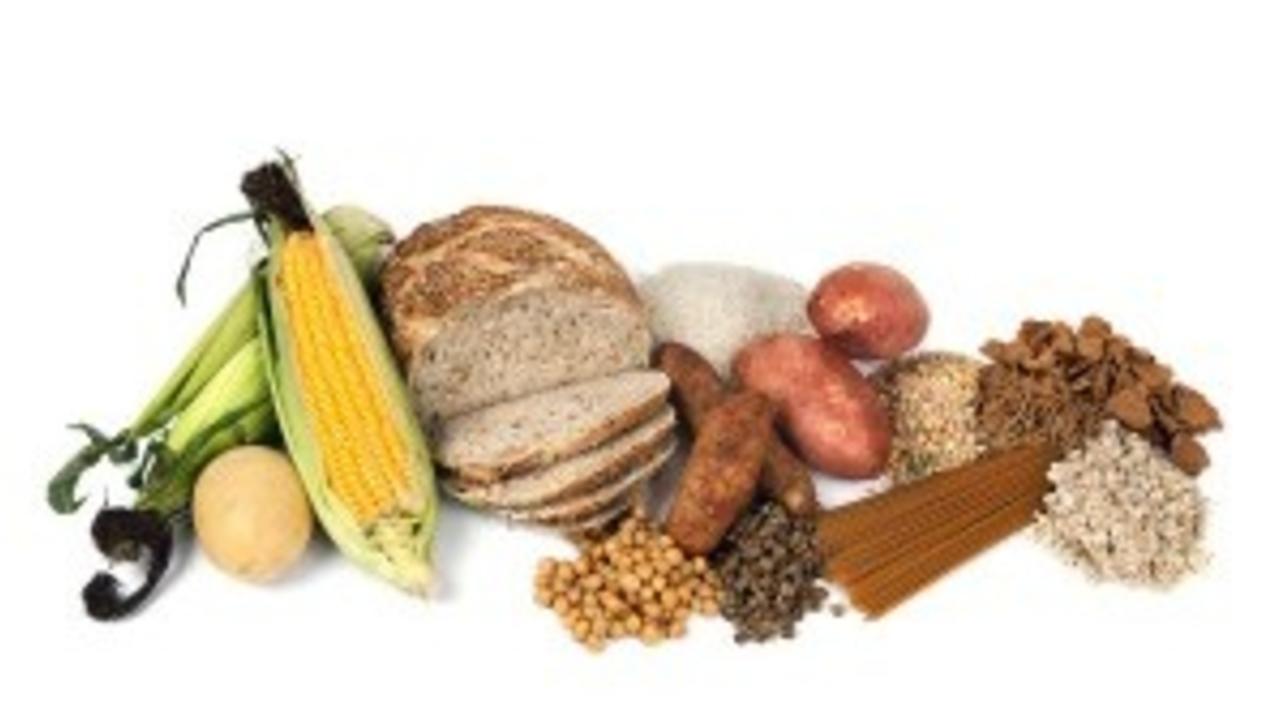What You Should Not Be Eating When You Have IBS?

What You Should Not Be Eating When You Have IBS
Irritable bowel syndrome affects roughly 20% of the population. The constant bloating, gas, cramping, and unpredictable bathroom urgency don't just wreck your digestion. They fuel anxiety, drain your energy, and keep you scanning every room for the nearest exit.
Your gut isn't broken because you're weak or dramatic. It's struggling because certain foods trigger inflammatory cascades and bacterial overgrowth that your intestinal lining can't handle anymore.
Here's what needs to go, and why.
Remove ALL Grains First
Yes, even the "healthy whole grains" the USDA and food pyramid told you to eat six servings of daily.
This includes: bulgur, whole wheat flour, oats, corn, popcorn, brown rice, rye, barley, farro, wild rice, buckwheat, triticale, millet, quinoa, and sorghum.
Why grains wreck your gut:
Most grains contain gluten and gliadin (proteins that trigger zonulin release in your intestinal wall). Zonulin blows open the tight junctions between intestinal cells—the same mechanism cholera uses to flush your gut with water.
The result? Cramping, diarrhea, and rapid transit time that feels exactly like IBS. Because it IS a form of IBS.
Even "gluten-free" grains cause problems for people with damaged guts. The inflammatory load is too high when your intestinal barrier is already compromised.
The dietary guidelines that pushed whole grains weren't based on gut health research. They were based on population-level cholesterol targets and agricultural lobbying. Your intestines don't care about policy. They care about what doesn't rip them apart.
Remove grains completely for at least three weeks. See what happens.
Then Test FODMAPs
If removing grains helps but doesn't solve everything, FODMAPs are your next target.
FODMAP stands for Fermentable Oligosaccharides, Disaccharides, Monosaccharides And Polyols. These are short-chain carbohydrates your small intestine absorbs poorly.
Why FODMAPs cause problems:
When these sugars reach your colon unabsorbed, gut bacteria ferment them. Think brewing beer in your intestines, minus the alcohol. You get gas, bloating, cramping, and distension instead.
Most people handle FODMAPs fine because their gut bacteria are balanced. But if you've had multiple rounds of antibiotics (especially as a child), your microbiome is likely wrecked. Antibiotics kill good bacteria along with bad ones, leaving opportunistic species to dominate.
The overgrowth feeds on FODMAPs and produces excessive gas as a byproduct. Your gut becomes a fermentation factory.
The three-week FODMAP test:
Remove all high-FODMAP foods for three weeks. Then reintroduce them one category at a time, watching for symptoms. Some people tolerate certain FODMAPs but not others.
High-FODMAP Foods to Avoid (Temporarily)
Vegetables and Legumes: Garlic, onions, artichoke, asparagus, baked beans, beetroot, black-eyed peas, broad beans, butter beans, cauliflower, celery (>5cm stalk), kidney beans, leeks, mange tout, mushrooms, peas, savoy cabbage, soybeans, shallots
Fruits: Apples, apricots, avocado, blackberries, cherries, currants, dates, grapefruit, lychee, mango, nectarines, peaches, pears, persimmon, plums, prunes, raisins, watermelon, tinned fruit in apple/pear juice
Grains and Nuts: All wheat products (bread, pasta, biscuits, cakes, pastries), barley, rye, couscous, semolina, bran cereals, cashews, pistachios, egg noodles
Dairy: Milk (cow, goat, sheep), cream, ice cream, yogurt, sour cream, cream cheese, custard, margarine, buttermilk
Sweeteners: Honey, agave, high-fructose corn syrup, fructose, sugar-free sweeteners (sorbitol, mannitol, xylitol, maltitol, isomalt), inulin
Drinks: Beer (>1 bottle), wine (>1 glass), rum, diet sodas, sports drinks, orange juice (>100ml), dandelion tea, fruit teas with apple
What This Looks Like in Practice
Start with complete grain removal. No exceptions for three weeks.
If symptoms improve by 70-80%, grains were your main problem. Stay off them.
If symptoms improve by 30-50%, add the FODMAP elimination on top of the grain-free approach. Track your response for another three weeks.
Then reintroduce FODMAP categories slowly. You might tolerate stone fruits but not onions. Or dairy but not garlic. The pattern varies.
Your gut will tell you what it can handle. Listen to it.
What Happens Next
Healing your intestinal barrier takes time. Removing inflammatory triggers is step one. Addressing the root causes of IBS—nervous system dysregulation, bacterial imbalances, nutrient deficiencies—is step two.
For more guidance on building a gut-healing nutrition plan, visit the Fuel Your Body pillar page.
You have options beyond living within sprinting distance of a bathroom. Start with what you're eating. See what your gut does when you stop poisoning it.
Need help identifying your specific IBS triggers? Dr. JJ Gregor uses Applied Kinesiology to test food sensitivities and gut function in his Frisco, Texas practice. Schedule a consultation to map out your personalized gut-healing protocol.
Stay connected with news and updates!
Join our mailing list to receive the latest news and updates from our team.
Don't worry, your information will not be shared.

